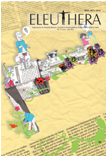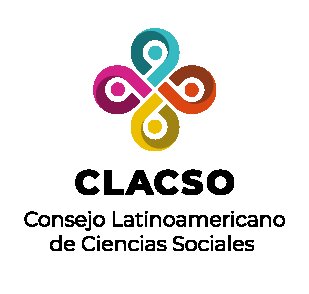Authors
Abstract
Objective. To open a new perspective from which to explore the memories of the armed conflict , to explain the experience of uprooting and help provide continuity and visibility to the actions for recognition and reconstruction of life projects of women victims of forced displacement. Methodology. A theoretical and practical exercise, in which the kitchen and family nutrition are central, has been developed as methodology. Based on reading and analysis of thematic and local literature, in-depth interviews have been conducted with a group of seven women victim of forced displacement, with the particularity that they took place in the context of their domestic kitchens. Results. The article that follows is intended to show some of the results obtained from the interviews and individual and collective meetings with the group of women. Conclusion. In conclusion, from these interviews and their respective analysis, it follows that the kitchen –as the set of knowledge and activities devoted to a diet- is understood as a daily space for reproduction of memories and of social and symbolic resistance in the stage subsequent to displacement. In turn, it becomes the center of creation for employment opportunities from which to face the new stage of life in order to rebuild the family and social fabric biased by the armed conflict. Thus, this research contributes to the set of reflections that revolve around the possibilities of building a society beyond armed conflict.
References
Bello, M.N. (2006). Investigación y desplazamiento forzado. Bogotá, Colombia: REDIF, COLCIENCIAS.
Casas, M.I., González, A.M., Muñoz, M., Ramírez, M.E. (2005). Mujer y conflicto armado. Informe sobre violencia sociopolítica contra mujeres, jóvenes y niñas en Colombia. Bogotá, Colombia: Anthropos.
Contreras, J. y Gracia, M. (2005). Alimentación y cultura: perspectivas antropológicas. Barcelona, España: Ariel.
Douglas, M. (1995). Las estructuras de lo culinario. En J. Contreras (comp.), Alimentación y cultura: necesidades, gustos y costumbres (pp. 171-198). Barcelona, España: Universitat de Barcelona.
Duque, H. (2000). Mujeres en situación de desplazamiento. Una experiencia de reinvención social desde la perspectiva de género en contextos urbanos. En M.N. Bello, E. Martín, F.J. Arias (comps.), Efectos psicosociales y culturales del desplazamiento. Bogotá, Colombia: Universidad Nacional de Colombia.
Giard, L. (1994). Hacer de comer. En M. de Certeau (comp.), La invención de lo cotidiano, Vol. 2: habitar cocinar (pp. 151-265). Ciudad de México, México: Universidad Latinoamericana, Instituto Tecnológico de Estudios Superiores de Occidente.
Martínez, F. (2006). Desplazamiento forzado. El tránsito de la memoria, el habitar y la urgencia del reconocimiento. Revista de Ciencias Sociales y Humanas Zona, 1 (1), 13-17.
Osorio, F.E. (2007). Allá se sufre mucho… pero se vive mejor. Identidades campesinas desde lo perdido: los desplazados y sus percepciones. ¿Quiénes son los campesinos hoy?: Diálogo en torno a la antropología y los estudios rurales en Colombia. Seminario llevado a cabo en el XII Congreso de Antropología en Colombia, Universidad Nacional de Colombia, Bogotá, Colombia.
Pizarro, R. y Londoño, B. (comps.) (2005). Derechos humanos de la población desplazada en Colombia. Evaluación de sus mecanismos de protección. Bogotá, Colombia: Universidad del Rosario.
Poulain, J-P. (2011). ¿Cómo afrontar los fenómenos alimentarios? Recuperado de www.es.scribd.com.
Prada, G.E., Herrán, O.F., Ortiz, R. (2008). Patrón alimentario y acceso a los alimentos en familias desplazadas en el municipio de Girón, Santander, Colombia. Revista Panamericana de Salud Pública, 23 (4), 257-263.

 PDF (Español)
PDF (Español)
 FLIP
FLIP





























